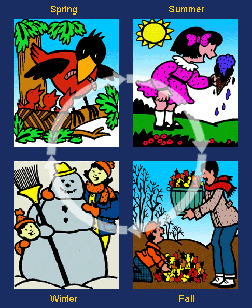The seasons are a well-known example of a cycle.
Click on image for full size
Windows to the Universe original image
What is a Cycle?
You've probably heard of
the water cycle,
the solar cycle,
the rock cycle and maybe even the
carbon,
nitrogen and phosphorus cycles.
Very simply, when scientists talk about cycles, they are talking about sequences of events that repeat themselves. Some cycles are very simple. For example, the phases of the Moon represent a cycle in that they always repeat – New Moon, Waxing Crescent, First Quarter, Waxing Gibbous, Full Moon, Waning Gibbous, Last Quarter, Waning Crescent and then back to New Moon!
In Earth system science, cycles can be very complex. There are many
different types of elements and nutrients in the Earth system. These
elements can not be made or destroyed, but they can change their
location. Locations where elements can be stored are called reservoirs. Elements can move in and out of a reservoir over time. In this way,
elements cycle through the Earth system. These cycles are called
biogeochemical cycles.
You might also be interested in:
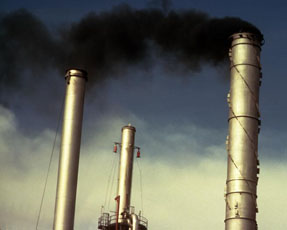
Leaders from 192 nations of the world are trying to make an agreement about how to limit emissions of heat-trapping greenhouse gases, mitigate climate change, and adapt to changing environmental conditions.
...more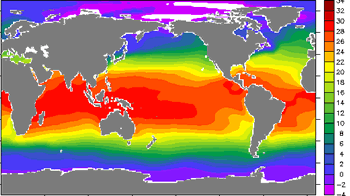
Climate in your place on the globe is called regional climate. It is the average weather pattern in a place over more than thirty years, including the variations in seasons. To describe the regional climate
...more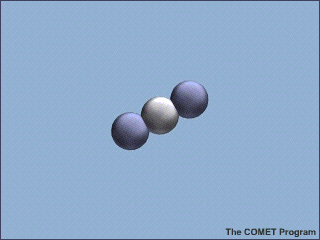
Less than 1% of the gases in Earth's atmosphere are called greenhouse gases. Even though they are not very abundant, these greenhouse gases have a major effect. Carbon dioxide (CO2), water vapor (H2O),
...more
Television weather forecasts in the space age routinely feature satellite views of cloud cover. Cameras and other instruments on spacecraft provide many types of valuable data about Earth's atmosphere
...more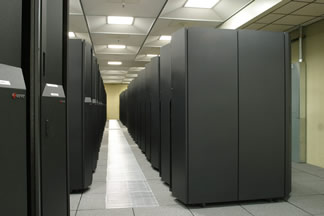
Predicting how our climate will change in the next century or beyond requires tools for assessing how planet responds to change. Global climate models, which are run on some of the world's fastest supercomputers,
...more
The world's surface air temperature increased an average of 0.6° Celsius (1.1°F) during the last century according to the Intergovernmental Panel on Climate Change (IPCC). This may not sound like very
...more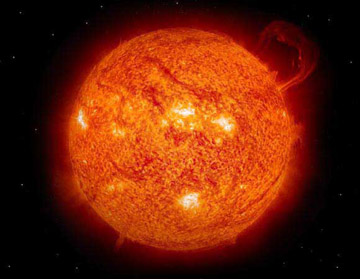
A factor that has an affect on climate is called a “forcing.” Some forcings, like volcanic eruptions and changes in the amount of solar energy, are natural. Others, like the addition of greenhouse gases
...more


